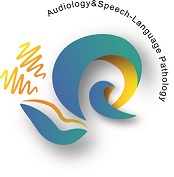View count:
9364
Introduction
- Introduction -
We aim to educate and train students to become speech-language pathologists (SLPs) and audiologists (AUDs) to work with children, adults, and elderly with speech, language, swallowing, and hearing impairment. Students are eligible to take the national license examinations for speech-language pathologists or audiologists after graduation, and begin their career as an SLP or an AUD upon obtaining their licenses.
 What is a speech-language pathologist?
What is a speech-language pathologist?
A speech-language pathologist (SLP) is an extensively-trained and licensed healthcare professional who specializes in the evaluation, evidence-based treatment, and prevention of speech, language, social communication, and swallowing disorders. SLPs work closely with people of all ages with these impairments caused by traumatic brain injury, cerebrovascular accident (i.e., stroke), vocal abuse, head and neck cancer, cleft palate, cerebral palsy, dementia, and hearing impairment to minimize the negative impact of these disorders. SLPs offer services in many settings, including hospitals, rehabilitation centers, nursing homes, long-term care facilities, school systems, and private practice.
See Speech Therapist Act for SLP regulations and services.
 What is an audiologist?
What is an audiologist?
An audiologist (AUD) is an extensively-trained and licensed healthcare professional who specializes in the prevention, evaluation, identification, and evidence-based treatment of balance and auditory disorders. AUDs work closely with people of all ages with these problems caused by auditory neuropathy, cochlear damage, otitis media, aging, noise-induced hearing loss and inner ear imbalance to minimize the negative impact of these disorders. AUDs offer services in many settings, including hospitals, long-term care facilities, school systems, early intervention centers, hearing aid companies, research organizations, and private practice.
See Hearing Specialists Act for AUD regulations and services.

 Department of Audiology and Speech-Language Pathology, Asia University
Department of Audiology and Speech-Language Pathology, Asia University